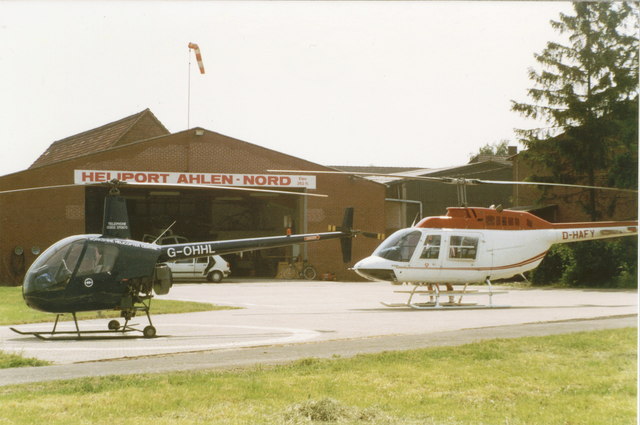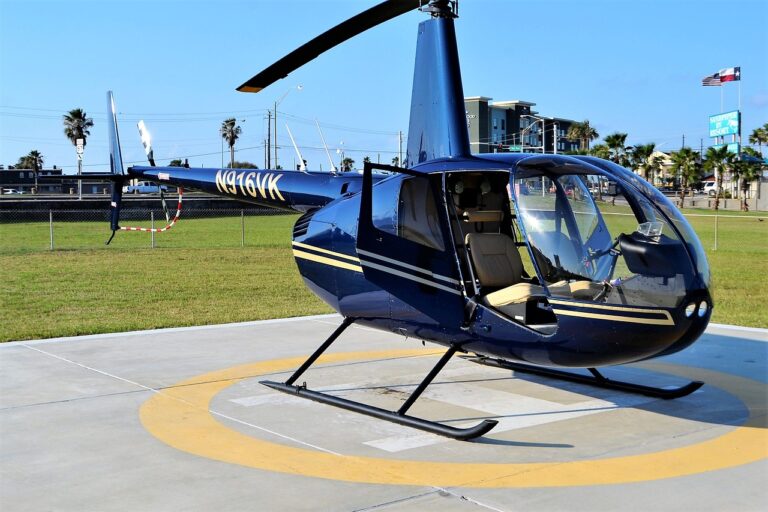Can I Keep My Helicopter at My House
Can I Keep My Helicopter at My House? Let’s Take a Look
So, you’ve finally taken the leap and acquired a helicopter—congratulations! Naturally, as a proud owner, you’re starting to wonder: “Can I keep my helicopter at my house?” It’s a question that may revolutionize your adventures in the sky and potentially save you the hassle of locating a nearby heliport. In this article, devoid of flowery language or unnecessary fluff, we’re going to explore the practicality and feasibility of helipad installation at residential properties. Let’s dive straight into the facts, unpacking all the essentials so that you can make an informed decision.
Table of Contents
- – Understanding the Rules and Regulations Surrounding Personal Helicopter Ownership
- – Evaluating Zoning Laws and Building Codes to Determine Feasibility
- – Assessing the Environmental and Noise Impact of Helicopter Storage on Residential Properties
- – Exploring Alternatives and Considerations for Helicopter Storage Off-Site
- – Hiring Professional Consultants for Guidance and Compliance during the Process
- FAQs
- In Conclusion

– Understanding the Rules and Regulations Surrounding Personal Helicopter Ownership
When it comes to personal helicopter ownership, there are several important rules and regulations that individuals need to understand and comply with. Familiarizing yourself with these guidelines is crucial to ensure a safe and legally compliant ownership experience. Here, we will delve into the key aspects of helicopter ownership regulations:
Licensing Requirements: Owning a personal helicopter entails obtaining the necessary licenses and certifications. Pilots must have a valid private pilot license (PPL) with helicopter rating, which typically involves completing a specified number of flight hours, passing written exams, and demonstrating proficiency in various flight maneuvers. Additionally, it is essential to fulfill medical requirements to ensure fitness for operating a helicopter.
Registration and Documentation: Registering your personal helicopter is a vital step to establish ownership and comply with regulatory authorities. Proper documentation, including proof of ownership, serial numbers, and maintenance records, is necessary for record-keeping and legal purposes. It is also important to keep these documents easily accessible and updated to ensure smooth operations and to provide proof of compliance during inspections or audits.
– Evaluating Zoning Laws and Building Codes to Determine Feasibility
In order to assess the viability of a construction project, it is crucial to thoroughly evaluate the existing zoning laws and building codes applicable to the intended location. This process helps determine whether the project aligns with the regulations set by the local authorities. By conducting a comprehensive review, developers can ensure that their proposed plans adhere to the prescribed guidelines, avoiding any potential legal or financial setbacks.
During the evaluation, it is essential to consider various aspects of the zoning laws and building codes. This includes understanding the permitted land uses for the location, as well as any restrictions or limitations imposed by the zoning regulations. Moreover, it is important to analyze the density and intensity standards, setback requirements, height restrictions, and parking regulations that may apply. By thoroughly assessing these factors, developers can gauge the feasibility of their proposed project and make necessary adjustments to comply with the existing laws. Additionally, conducting a thorough review of the building codes helps identify any specific requirements related to structural design, fire safety, accessibility, and energy efficiency. By addressing these elements early on, developers can ensure that their construction plans meet all the necessary standards, guaranteeing a safe and compliant structure.

– Assessing the Environmental and Noise Impact of Helicopter Storage on Residential Properties
In order to objectively evaluate the potential ramifications of helicopter storage on residential properties, a comprehensive assessment of the environmental and noise impact must be conducted. By analyzing various factors and gathering accurate data, we can determine the effects helicopter storage may have on the surrounding community.
One crucial aspect of this assessment involves studying the environmental impact. This includes evaluating issues such as air and water quality, as well as the potential disruption of local ecosystems and wildlife habitats. By examining the emissions produced by helicopters and their impact on air quality, we can gauge the extent of the environmental footprint. Additionally, we will assess the noise pollution generated by helicopter activities as it pertains to nearby residential areas, focusing on the intensity, frequency, and duration of noise events. Through this analysis, we can ascertain the potential implications on the quality of life for residents living in close proximity to the helicopter storage facility.

– Exploring Alternatives and Considerations for Helicopter Storage Off-Site
Helicopter storage can be a challenge, especially when it comes to finding the right off-site location. Exploring alternative options and considering various factors is essential to ensure the safety and security of your valuable aircraft.
One alternative solution is to utilize dedicated hangars specifically designed for helicopter storage. These hangars offer specialized facilities and equipment, including maintenance capabilities and security systems. With a dedicated hangar, you can have peace of mind knowing that your helicopter is protected from the elements and potential security threats.
Another consideration for off-site helicopter storage is the distance from your primary operating location. While it may be convenient to have the helicopter stored nearby, it is equally important to weigh the benefits of a more remote location. Storing the helicopter away from your main base can minimize the risk of damage during severe weather events or natural disasters. Additionally, it can help reduce noise pollution and potential conflicts with local communities or authorities.
In conclusion, exploring alternatives and considering various factors is crucial when it comes to off-site helicopter storage. By utilizing dedicated hangars and evaluating the distance from your primary operating location, you can ensure the safety, security, and longevity of your valuable aircraft.

– Hiring Professional Consultants for Guidance and Compliance during the Process
In today’s complex business environment, navigating through various processes and ensuring compliance with regulations can be a daunting task. That’s where hiring professional consultants can make all the difference. These experienced experts are equipped with the knowledge and expertise to guide you effortlessly through the intricacies of any process, allowing you to focus on what you do best – growing your business.
One of the key advantages of hiring professional consultants is their ability to provide valuable guidance. Whether you’re seeking assistance with legal, financial, or operational matters, these consultants possess the know-how to steer you in the right direction. Their in-depth understanding of industry best practices and current regulations ensures that you stay on the right side of the law, avoiding any potential pitfalls or compliance issues that could arise. With their keen insights, these consultants can help you identify potential risks and devise effective strategies to mitigate them, thus safeguarding the future of your business.
When you hire professional consultants, you’re not just gaining a partner in your journey towards success, but also someone who will ensure your compliance with all relevant laws and regulations. These consultants stay up to date with the latest industry changes and possess a deep understanding of the ever-evolving regulatory landscape. With their assistance, you can rest assured that your business operations are in full compliance, avoiding costly penalties and legal complications. Additionally, professional consultants can help you streamline your processes, increase efficiency, and improve overall performance, allowing you to achieve your business goals with ease. So, why struggle through the complexities alone when you can have expert guidance and compliance support by your side?
FAQs
Can I Keep My Helicopter at My House?
Whether you can keep a helicopter at your house depends on several factors, including your location, local regulations, and the specific zoning laws in your area.
- Location: The first consideration is where your house is located. If your house is in a densely populated urban area or a neighborhood with strict zoning restrictions, it is less likely that you’ll be allowed to keep a helicopter at your property.
- Local Regulations: Different cities, towns, and municipalities have their own regulations and bylaws regarding aircraft, including helicopters. Some areas may have restrictions on the size and type of aircraft that can be stored on residential properties.
- Zoning Laws: Zoning laws determine how land can be used in a specific area. Residential areas typically have restrictions on commercial activities, and keeping a helicopter might be considered a commercial use. Some zones may allow for the storage of personal recreational vehicles, including small aircraft, while others may not.
- Homeowner’s Association (HOA) Rules: If your property is part of a homeowner’s association, there may be additional rules and restrictions regarding the storage of helicopters or any other aircraft.
- Environmental Impact: Helicopters can create noise and environmental concerns, especially in residential areas. Local authorities may take this into account when evaluating your request.
- Safety and Space Requirements: Helicopters require a suitable landing area, and safety considerations must be taken into account. You’ll need enough space for take-offs and landings without posing a risk to nearby structures or people.
To find out if you can keep a helicopter at your house, you should:
- Check with your local aviation authorities to understand any aviation-related regulations and requirements.
- Contact your city or county zoning department to inquire about the specific rules and restrictions in your area.
- Review your homeowner’s association guidelines, if applicable.
- Consult with a lawyer or expert familiar with aviation and zoning laws in your area to get a clear understanding of what is allowed.
Q: Who is this article for?
A: This article is for helicopter owners who want to know if they can keep their aircraft at their residential property.
Q: Is it legal to keep a helicopter at my house?
A: The legality of keeping a helicopter at your house depends on various factors, such as local zoning regulations and restrictions.
Q: What are zoning regulations?
A: Zoning regulations are laws that control how land can be used. They dictate what types of buildings can be constructed and determine how property can be used, including whether helicopters can be kept at residential properties.
Q: What should I do first?
A: Before keeping a helicopter at your house, you should consult your local zoning board or planning department to understand the specific regulations in your area.
Q: What if my property is in a restricted zone?
A: If your property is in a restricted zone, it may not be legal to keep a helicopter there. However, some areas may have exceptions or special permits available for helicopter storage.
Q: Are there any size or space requirements?
A: Yes, there are often size and space requirements for keeping a helicopter at your house. These can include minimum lot size, setback requirements, and limitations on hangar size.
Q: What if my property doesn’t meet the requirements?
A: If your property doesn’t meet the requirements for helicopter storage, you may need to explore other options like renting space at an airport or heliport.
Q: Are there any noise restrictions?
A: Yes, noise restrictions may apply when it comes to keeping a helicopter at your house. Some residential areas have strict noise regulations that could affect your ability to store a helicopter on your property.
Q: Can I do any modifications to meet the requirements?
A: In some cases, you may be able to make certain modifications to your property to meet the requirements for helicopter storage. However, this will largely depend on the specific regulations and zoning laws in your area.
Q: What if there are no restrictions in my area?
A: If there are no restrictions in your area, and your property meets all the necessary requirements, then you can likely keep your helicopter at your house without any legal issues.
Disclaimer: This article provides general information and should not be considered legal advice. It is essential to consult with local authorities and professionals specializing in aviation and zoning regulations to determine the legality of keeping a helicopter at your residential property.
To Wrap It Up
In conclusion, the question of whether you can keep your helicopter at your house comes down to a variety of factors. From legal restrictions to practical considerations, there are several aspects to consider. It is crucial to research local laws and regulations regarding helicopter storage and noise restrictions in your area. Additionally, you must evaluate the available space, suitable landing spots, and potential impact on your neighbors. Remember, owning a helicopter is an exciting venture, but it requires due diligence and responsible decision-making. Take the time to weigh all the aspects before transforming your backyard into a helipad.







